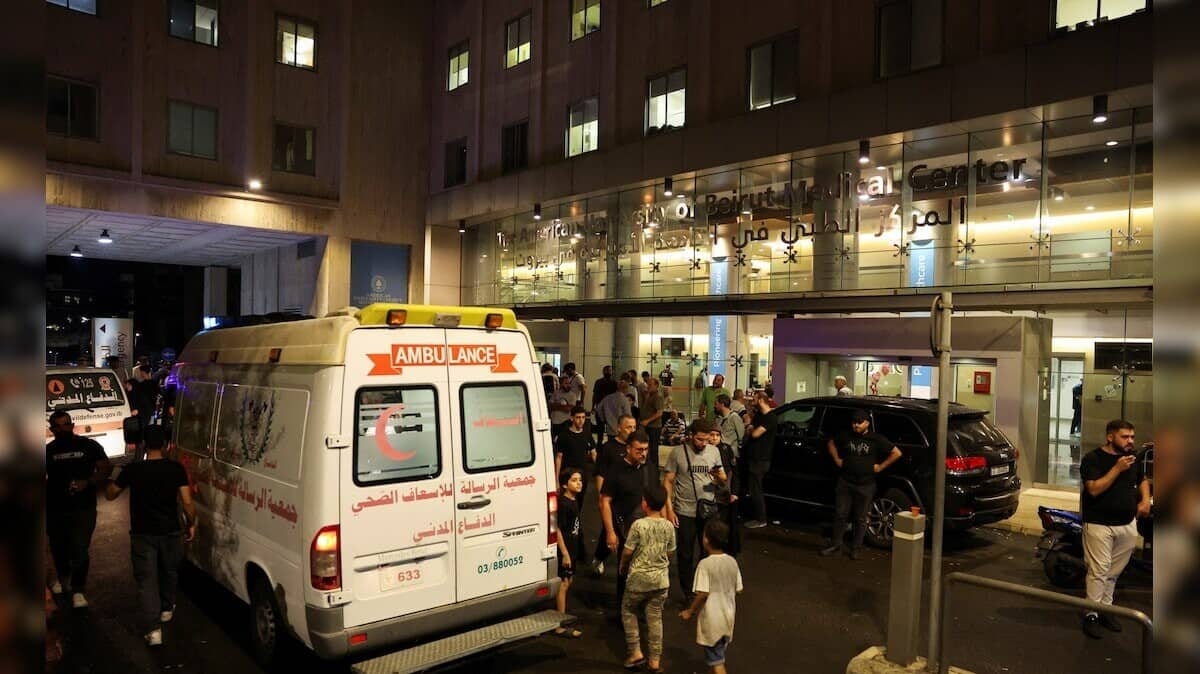
After pager blasts, walkie-talkies used by Hezbollah explode; 9 killed
What's the story
A series of walkie-talkie explosions occurred in the Hezbollah stronghold of Beirut, Lebanon, on Wednesday. The explosions have killed at least nine people and wounded at least 300 in cities across Lebanon. These explosions follow a similar incident on Tuesday, when thousands of pagers imported by Hezbollah months earlier detonated across Lebanon, killing nine people and wounding nearly 3,000 others. According to Reuters, Hezbollah purchased the walkie-talkies five months ago, around the same time as the pagers.
Twitter Post
Video of alleged blast
لحظة انفجار جهاز لاسلكي أثناء تشييع في الضاحية الجنوبية pic.twitter.com/jNYyKHhzDq
— Al Jadeed News (@ALJADEEDNEWS) September 18, 2024
Wounded
Explosions 'small in size'
A Hezbollah insider confirmed to the Guradian that the attack targeted the group's walkie-talkies. Another senior security source described the explosions as "small in size," similar to Tuesday's strikes. Lebanon's Red Cross announced on X that it was responding with 30 ambulance units to multiple explosions in different areas and that more teams are on high alert, ready to intervene.
Prior incident
Pager explosions precede walkie-talkie blasts
Senior Lebanese security sources told Reuters that Israel's Mossad spy agency planted small amounts of explosives inside 5,000 Taiwan-made pagers ordered by Hezbollah months before Tuesday's detonations. However, the pagers used in the operation were not produced by Taiwan-based Gold Apollo, as initially believed. According to Gold Apollo's founder Hsu Ching-Kuang, the devices were manufactured by a European company authorized to use their brand.
Official statement
Lebanese army confirms explosive nature of pagers
A coded message sent to the pagers triggered the explosives, causing 3,000 of the devices to detonate simultaneously. Each pager contained up to three grams of explosives that had gone undetected by Hezbollah for months, a security source revealed. The aftermath left Hezbollah in shock with fighters and others injured or dead. An anonymous official described it as the group's "biggest security breach" since the Gaza conflict erupted on October 7.